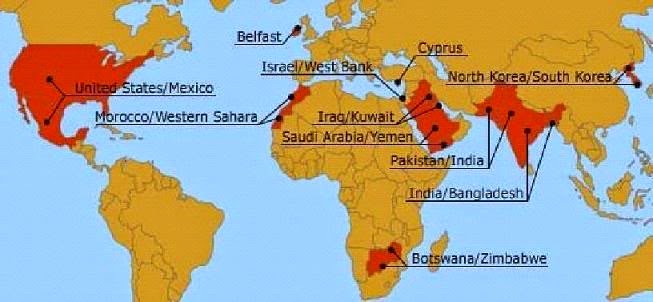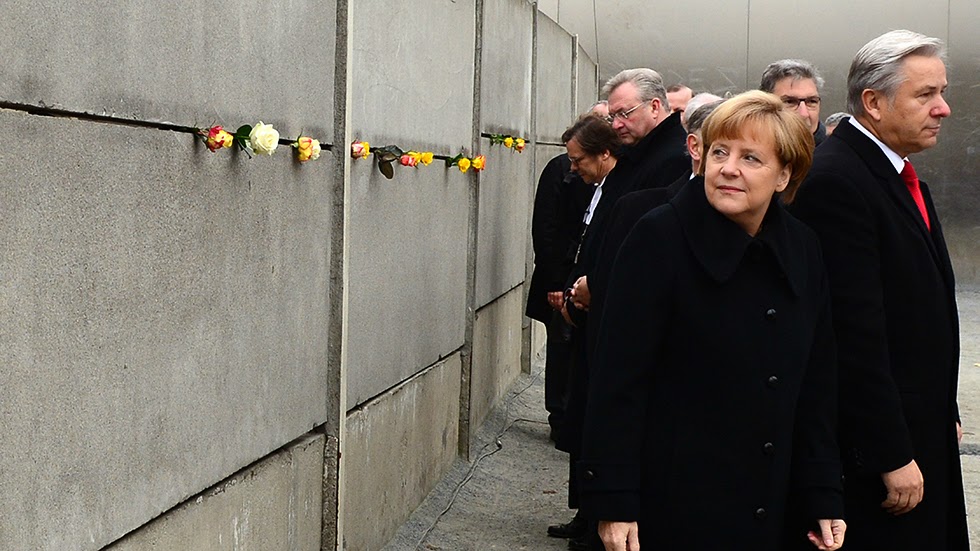 |
| US Torture |
“Common standard of achievement for all peoples, all nations
to the end that every individual, every organ of society, keeping this
Declaration constantly in mind, shall strive by teaching and education
…to promote respect for these rights
and freedoms, by progressive measures, national and international
 |
Caught in
US Interminable Wars |
…to secure their universal and
effective recognition and observance – both among the peoples of (UN) Member
States themselves and among the peoples of territories under their
jurisdiction."
Universal Declaration of Human Rights
Articles excerpted (ref Britannica) with minor edit by
Carolyn Bennett
 |
Hon. Eleanor Roosevelt
UN Declaration of Human Rights
1948 |
Article 1: All human
beings are born free and equal in dignity and rights. They are endowed with
reason and conscience and should act towards one another in a spirit of
brotherhood.
Article 2: Everyone is
entitled to all the rights and freedoms set forth in this Declaration, without
distinction of any kind, such as race, colour, sex, language, religion,
political or other opinion, national or social origin, property, birth or other
status.
Furthermore, no distinction shall be made on the basis of
the political, jurisdictional or international status of the country or
territory to which a person belongs, whether it be independent, trust,
non-self-governing or under any other limitation of sovereignty.
Article 3: Everyone has
the right to life, liberty and the security of person.
Article 4: No one shall
be held in slavery or servitude; slavery and the slave trade shall be
prohibited in all their forms.
Article 5: No one shall
be subjected to torture or to cruel, inhuman or degrading treatment or
punishment.
Article 6: Everyone has
the right to recognition everywhere as a person before the law.
Article 7: All are equal
before the law and are entitled without any discrimination to equal protection
of the law. All are entitled to equal protection against any discrimination in
violation of this Declaration and against any incitement to such
discrimination.
Article 8: Everyone has
the right to an effective remedy by the competent national tribunals for acts
violating the fundamental rights granted him by the constitution or by law.
Article 9: No one shall
be subjected to arbitrary arrest, detention or exile.
 |
Guantanamo Bay
USA |
Article 10: Everyone is
entitled in full equality to a fair, and public hearing by an independent and
impartial tribunal, in the determination of his rights and obligations and of
any criminal charge against him.
Article 11: 1. Everyone
charged with a penal offence has the right to be presumed innocent until proved
guilty according to law in a public trial at which he has had all the
guarantees necessary for his defence.
2. No one shall be held guilty of any penal offence on
account of any act or omission which did not constitute a penal offence, under
national or international law, at the time when it was committed. Nor shall a
heavier penalty be imposed than the one that was applicable at the time the
penal offence was committed.
Article 12: No one shall
be subjected to arbitrary interference with his privacy, family, home or
correspondence, nor to attacks upon his honour and reputation. Everyone has the
right to the protection of the law against such interference or attacks.
Article 13: 1. Everyone
has the right to freedom of movement and residence within the borders of each
State.
2. Everyone has the right to leave any country, including
his own, and to return to his country.
Article 14: 1. Everyone
has the right to seek and to enjoy in other countries asylum from persecution.
2. This right may not be invoked in the case of prosecutions
genuinely arising from non-political crimes or from acts contrary to the
purposes and principles of the United Nations.
Article 15: 1. Everyone
has the right to a nationality.
2. No one shall be arbitrarily deprived of his nationality
nor denied the right to change his nationality.
Article 16: 1. Men and
women of full age, without any limitation due to race, nationality or religion,
have the right to marry and to found a family. They are entitled to equal
rights as to marriage, during marriage and at its dissolution.
2. Marriage shall be entered into only with the free and
full consent of the intending spouses.
3. The family is the natural and fundamental group unit of
society and is entitled to protection by society and the State.
Article 17: 1. Everyone
has the right to own property alone as well as in association with others.
2. No one shall be arbitrarily deprived of his property.
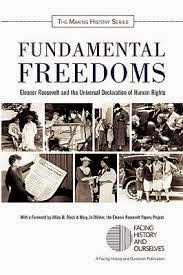 Article 18
Article 18: Everyone has
the right to freedom of thought, conscience and religion; this right includes
freedom to change his religion or belief, and freedom, either alone or in
community with others and in public or private, to manifest his religion or
belief in teaching, practice, worship and observance.
Article 19: Everyone has
the right to freedom of opinion and expression; this right includes freedom to
hold opinions without interference and to seek, receive and impart information
and ideas through any media and regardless of frontiers.
Article 20: 1. Everyone
has the right to freedom of peaceful assembly and association.
2. No one may be compelled to belong to an association.
Article 21: 1. Everyone
has the right to take part in the government of his country, directly or
through freely chosen representatives.
2. Everyone has the right of equal access to public service
in his country.
3. The will of the people shall be the basis of the authority
of government; this will shall be expressed in periodic and genuine elections
which shall be by universal and equal suffrage and shall be held by secret vote
or by equivalent free voting procedures.
Article 22: Everyone, as
a member of society, has the right to social security and is entitled to
realization, through national effort and international co-operation and in
accordance with the organization and resources of each State, of the economic,
social and cultural rights indispensable for his dignity and the free
development of his personality.
 Article 23
Article 23: 1. Everyone
has the right to work, to free choice of employment, to just and favourable
conditions of work and to protection against unemployment.
2. Everyone, without any discrimination, has the right to
equal pay for equal work.
3. Everyone who works has the right to just and favourable
remuneration ensuring for himself and his family an existence worthy of human
dignity, and supplemented, if necessary, by other means of social protection.
4. Everyone has the right to form and to join trade unions
for the protection of his interests.
Article 24: Everyone has
the right to rest and leisure, including reasonable limitation of working hours
and periodic holidays with pay.
Article 25: 1. Everyone
has the right to a standard of living adequate for the health and well-being of
himself and of his family, including food, clothing, housing and medical care
and necessary social services, and the right to security in the event of
unemployment, sickness, disability, widowhood, old age or other lack of
livelihood in circumstances beyond his control.
2. Motherhood and childhood are entitled to special care and
assistance. All children, whether born in or out of wedlock, shall enjoy the
same social protection.
Article 26: 1. Everyone has the right to education.
Education shall be free, at least in the elementary and fundamental stages.
Elementary education shall be compulsory. Technical and professional education
shall be made generally available and higher education shall be equally
accessible to all on the basis of merit.
2. Education shall be directed to the full development of
the human personality and to the strengthening of respect for human rights and
fundamental freedoms. It shall promote understanding, tolerance and friendship
among all nations, racial or religious groups, and shall further the activities
of the United Nations for the maintenance of peace.
3. Parents have a prior right to choose the kind of
education that shall be given to their children.
Article 27: 1. Everyone
has the right freely to participate in the cultural life of the community, to
enjoy the arts and to share in scientific advancement and its benefits.
2. Everyone has the right to the protection of the moral and
material interests resulting from any scientific, literary or artistic
production of which he is the author.
 Article 28
Article 28: Everyone is
entitled to a social and international order in which the rights and freedoms
set forth in this Declaration can be fully realized.
Article 29: 1. Everyone
has duties to the community in which alone the free and full development of his
personality is possible.
2. In the exercise of his rights and freedoms, everyone
shall be subject only to such limitations as are determined by law solely for
the purpose of securing due recognition and respect for the rights and freedoms
of others and of meeting the just requirements of morality, public order and
the general welfare in a democratic society.
3. These rights and freedoms may in no case be exercised
contrary to the purposes and principles of the United Nations.
Article 30: Nothing in
this Declaration may be interpreted as implying for any State, group or person
any right to engage in any activity or to perform any act aimed at the
destruction of any of the rights and freedoms set forth herein.
 International Human Rights Day 2014
International Human Rights Day 2014“Together, we must demand what should be guaranteed: our human rights, universal, indivisible, inalienable, for everyone, 365 days a year," said the UN High Commissioner for Human Rights, Zeid Ra'ad Al Hussein, in a statement on Human Rights Day December 10, 2014.
"The UN Human Rights Office stands with the millions of people around the world whose voices are denied."
Sources
Universal Declaration of Human Rights (UDHR) . (2013). Encyclopedia Britannica. Encyclopedia Britannica Deluxe Edition. Chicago: Encyclopedia Britannica
"Marking international observance, UN declares 'Every day is Human Rights Day'," http://www.un.org/apps/news/story.asp?NewsID=49562#.VIirKNLF9OM
Human Rights Day December 14, 2014, Theme: "Human Rights 365",
http://www.un.org/en/events/humanrightsday/
______________________________________________
A lifelong American writer and writer/activist (former academic and staffer with the U.S. government in Washington), Dr. Carolyn LaDelle Bennett is credentialed in education and print journalism and public affairs (PhD, Michigan State University, East Lansing, Michigan; MA, The American University, Washington, DC). Her work concerns itself with news and current affairs, historical contexts, and ideas particularly related to acts and consequences of U.S. foreign relations, geopolitics, human rights, war and peace, and violence and nonviolence. Dr. Bennett is an internationalist and nonpartisan progressive personally concerned with society and the common good. An educator at heart, her career began with the U.S. Peace Corps, teaching in Sierra Leone, West Africa. Since then, she has authored several books and numerous current-affairs articles; her latest book: UNCONSCIONABLE: How The World Sees Us: World News, Alternative Views, Commentary on U.S. Foreign Relations; most thoughts, articles, edited work are posted at Bennett’s Study: http://todaysinsightnews.blogspot.com/ and on her Facebook page https://www.facebook.com/carolynladelle.bennett. http://www.prweb.com/releases/2014/08UNCONSCIONABLE/prweb12131656.htm http://bookstore.xlibris.com/Products/SKU-000757788/UNCONSCIONABLE.aspx Her books are also available at independent bookstores in New York State: Lift Bridge in Brockport; Sundance in Geneseo; Dog Ears Bookstore and Literary Arts Center in Buffalo; Burlingham Books in Perry; The Bookworm in East Aurora
______________________________________________
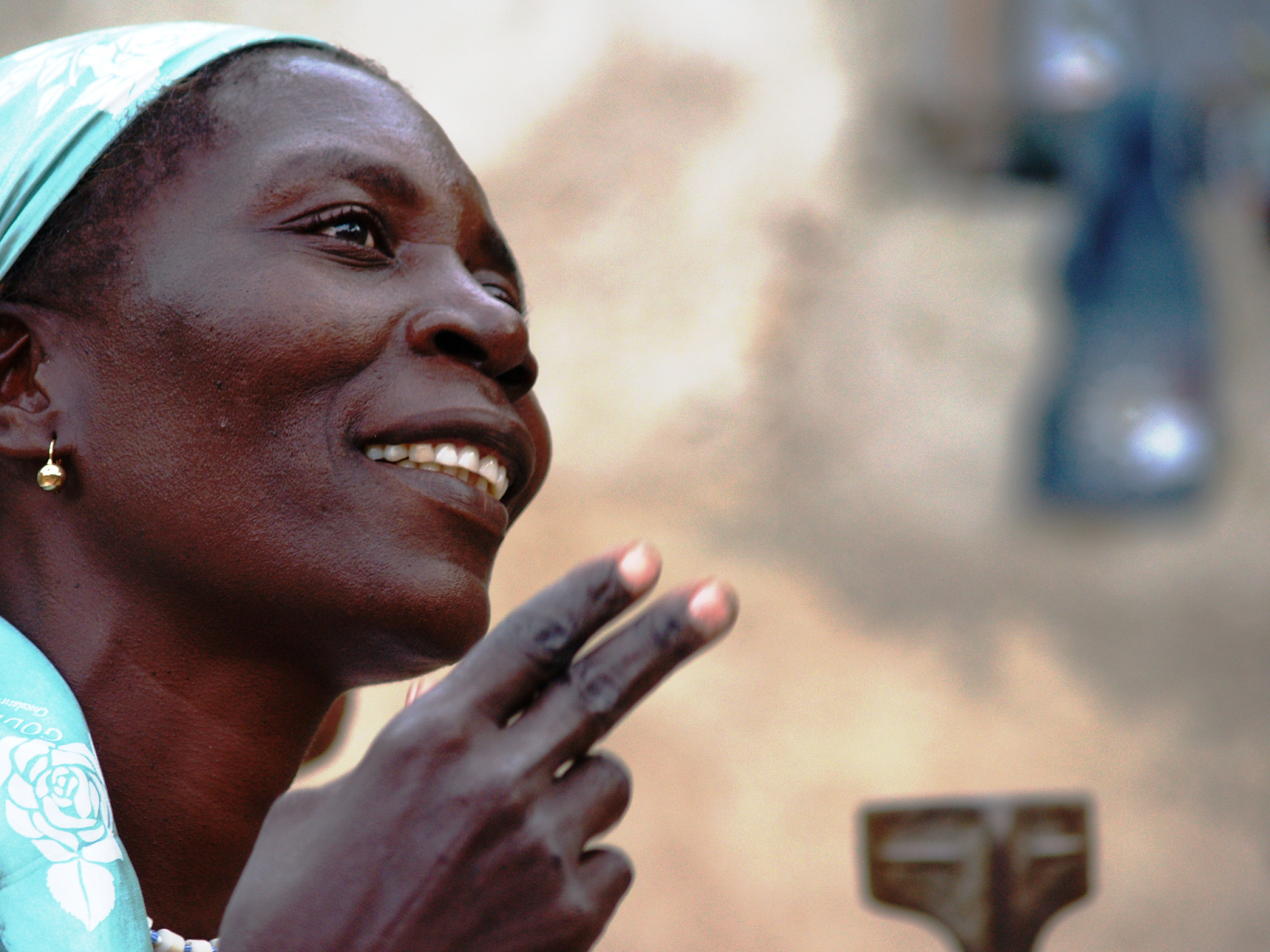

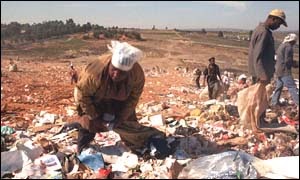
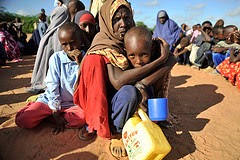
 Mutale recalled her homeland “soon after independence. She
said “Our own President Kaunda (Kenneth David Kaunda, Zambia’s first president,
1964-1991) and his government embarked on what we called ‘Zambianization’ in
which he hoped that eventually Zambians would be able to take over the
industries, take over the management of everything that we needed to do.”
Mutale recalled her homeland “soon after independence. She
said “Our own President Kaunda (Kenneth David Kaunda, Zambia’s first president,
1964-1991) and his government embarked on what we called ‘Zambianization’ in
which he hoped that eventually Zambians would be able to take over the
industries, take over the management of everything that we needed to do.”  fter Zambian independence, Mutale said, President Kaunda and
his government insisted that there must be an emphasis on “free education for all – every school, growing
child was eligible to be educated free of
charge by the government.” She said there was a governmental provision for “free health … to keep people healthy and
to educate people.”
fter Zambian independence, Mutale said, President Kaunda and
his government insisted that there must be an emphasis on “free education for all – every school, growing
child was eligible to be educated free of
charge by the government.” She said there was a governmental provision for “free health … to keep people healthy and
to educate people.” The term
Washington Consensus coined in 1989 by English economist John Williamson
references a set of 10 relatively specific economic policy prescriptions Williamson
considered the ‘standard’ reform package promoted by Washington, D.C.–based
institutions such as the International Monetary Fund (IMF), World Bank, and the
US Department of the Treasury – “for crisis-wracked developing countries.” Among these imposed prescriptions (brutishly disregarding indigenous needs and traditions, skills and talents) were: “macroeconomic
stabilization, economic opening with respect to both trade and investment, and the expansion of market forces
within the domestic economy.” [Wikipedia]
The term
Washington Consensus coined in 1989 by English economist John Williamson
references a set of 10 relatively specific economic policy prescriptions Williamson
considered the ‘standard’ reform package promoted by Washington, D.C.–based
institutions such as the International Monetary Fund (IMF), World Bank, and the
US Department of the Treasury – “for crisis-wracked developing countries.” Among these imposed prescriptions (brutishly disregarding indigenous needs and traditions, skills and talents) were: “macroeconomic
stabilization, economic opening with respect to both trade and investment, and the expansion of market forces
within the domestic economy.” [Wikipedia] The Bretton
Woods system of monetary management – the first example of a monetary
order to govern monetary relations among independent nation-states – is known
for having established global rules for commercial and financial relations
among major industrial states in the mid-20th century. Chief features of the Bretton Woods system oblige
countries “to adopt a monetary policy that maintains the exchange rate” by tying
currencies to gold and enabling “the IMF to bridge temporary imbalances of
payments.” [Wikipedia]
The Bretton
Woods system of monetary management – the first example of a monetary
order to govern monetary relations among independent nation-states – is known
for having established global rules for commercial and financial relations
among major industrial states in the mid-20th century. Chief features of the Bretton Woods system oblige
countries “to adopt a monetary policy that maintains the exchange rate” by tying
currencies to gold and enabling “the IMF to bridge temporary imbalances of
payments.” [Wikipedia]


























